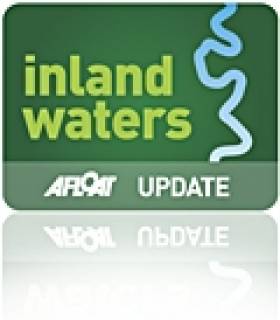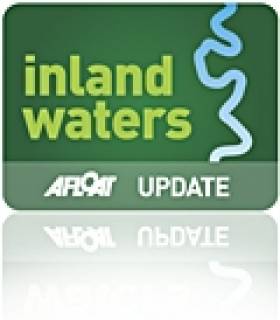Displaying items by tag: Sandra McLennan
Minister Has Little to Report on Ulster Canal Project
#INLAND WATERWAYS - Three months on from Minister Jimmy Deenihan's statement on the Ulster Canal regeneration project, and there is little to update on its progress.
As reported on Afloat.ie last December, the Minister for Arts, Heritage and the Gaeltacht replied to a written question from Cork East Sinn Féin deputy Sandra McLennan that the project is "progressing'"despite a U-turn on Government funding, and confirmed that Waterways Ireland would solely fund the scheme from its annual allocations.
However, the minister's latest response - to a question from Cavan-Monaghan Sinn Féin TD Caoimhghín Ó Caoláin requesting an update on the project's progress - is almost identical to his previous statement.
One small difference is an acknowledgement that Cavan County Council has granted planning permission for the project, which involves restoration of the canal between Clones in Co Monaghan and Upper Lough Erne.
Minister Deenihan also stated that his department is "finalising terms of reference" for the proposed inter-agency group that would examine ways to further the project, but gave no timeframe as to when this group would be established.
Ulster Canal Project 'Progressing' Despite U-Turn on Govt Funds
#INLAND WATERWAYS - The Ulster Canal restoration project will be funded by Waterways Ireland alone, at least for the time being, according to the Minister for Arts, Heritage and the Gaeltacht.
Responding in the Dáil to a written question from Cork East Sinn Féin deputy Sandra McLennan, Minister Jimmy Deenihan said that while the previous Government had committed in 2007 to covering the full capital costs of the project, estimated at €35 million, such was no longer viable in the current climate.
"Government accounting procedures do not provide, in that sense, for the ’ring-fencing’ of funds for projects of this nature," said the minister, who added that he was "advised that it was always the intention that the Ulster Canal project would be funded from the Waterways Ireland annual allocations" as well as "projected income from the commercialisation of certain Waterways Ireland assets", though he admitted this had been affected negatively by the economic downturn.
However, Minister Deenihan noted that the project - involving restoration of the canal between Clones in Co Monaghan and Upper Lough Erne - is "progressing incrementally" and that a planning application submitted in October was a "significant milestone".
He also confirmed that he intends "to continue to explore all possible options that may assist in the advancement of this project", which may involve an inter-agency group between the relevant county councils and interested bodies to examine ways of advancing the scheme.

























































